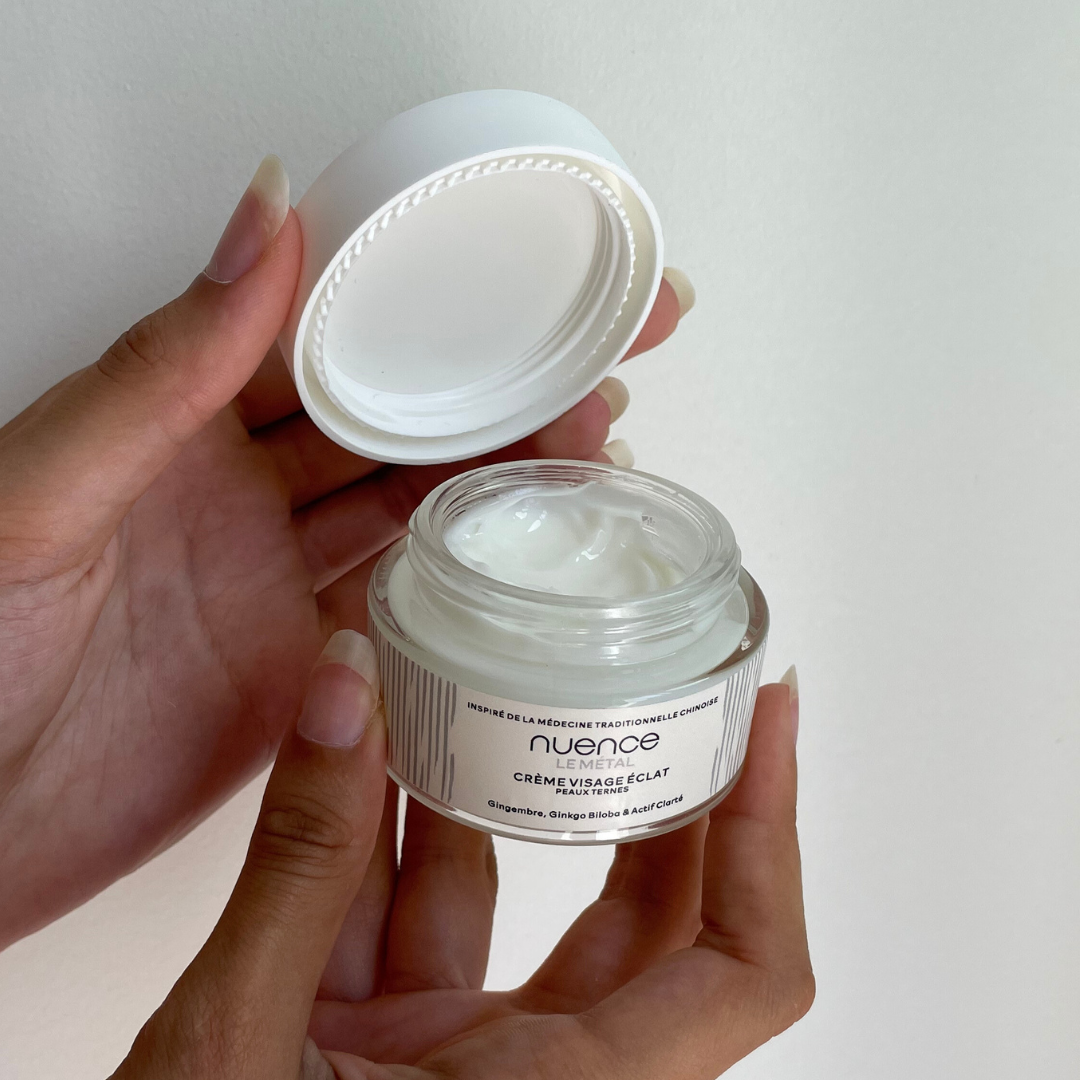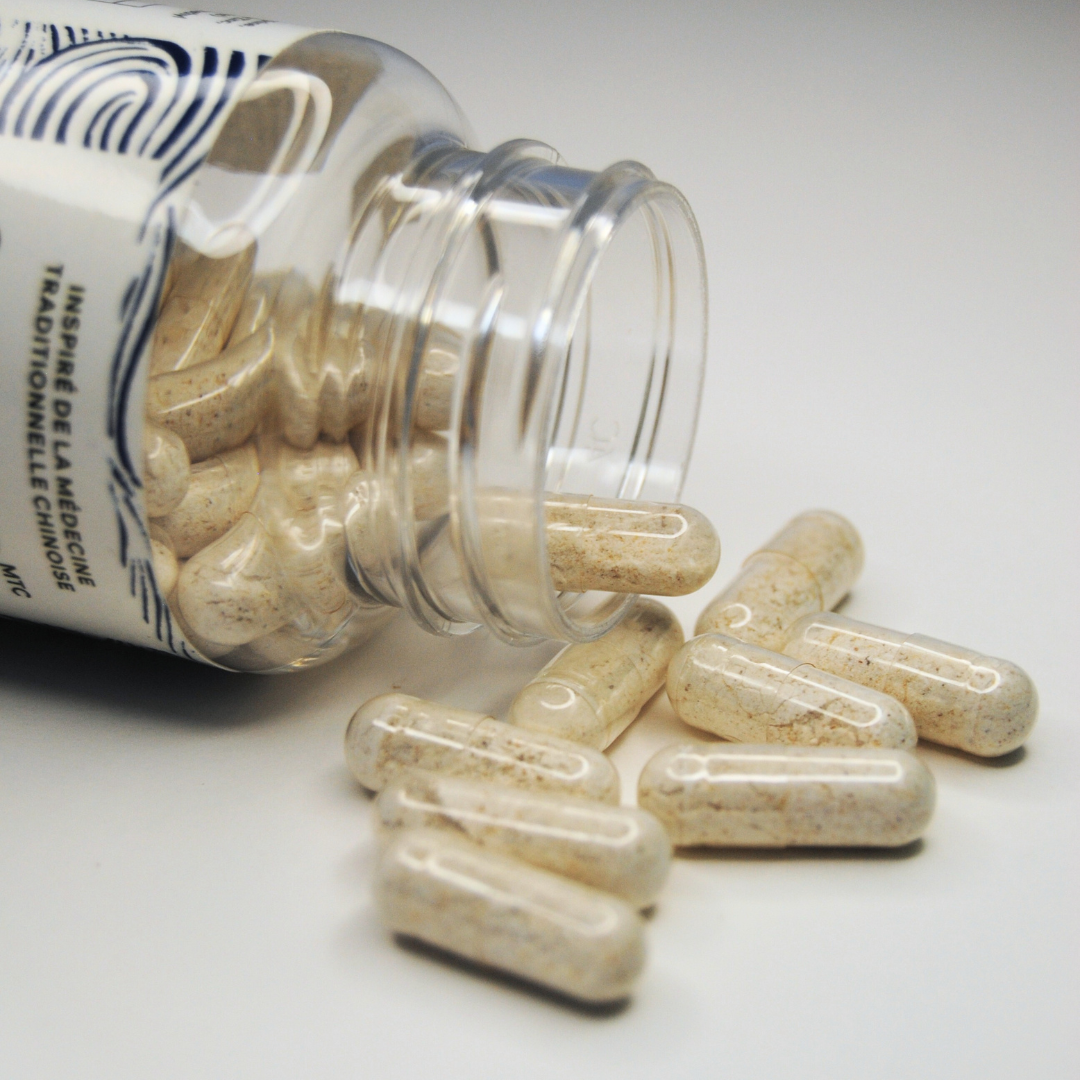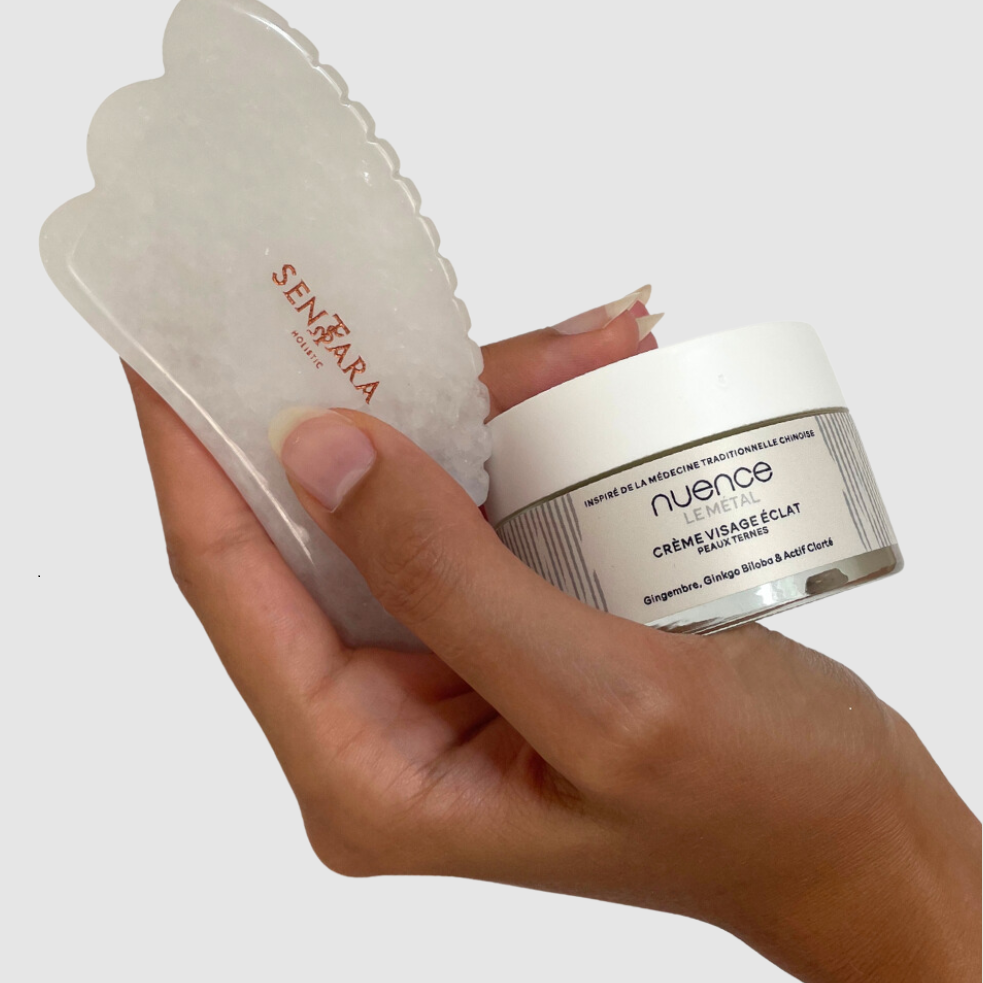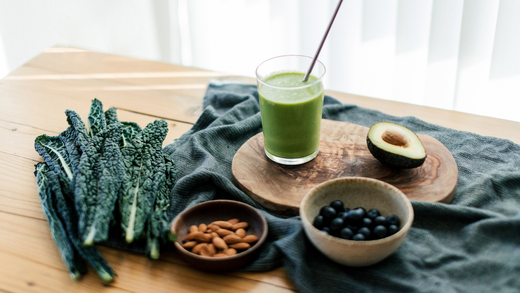Our epidermis and our nervous system are intimately linked.
The brain and skin share common embryonic origins since the two tissues constitute a single unit during the first weeks of embryo development.
The skin is not only the largest organ in the body, it is also a reflection of our general health, both physical and psychological. So the popular expression “feel good in your own skin” takes on its full meaning...
In this article, NUENCE explores the exciting field of “brain-skin connection”, including:
- the way the brain and skin communicate with each other,
- how the skin reacts to stress,
- the negative impact of chronic stress on skin health.
- how TCM addresses this public health subject through its holistic approach and natural care.
1. The skin, this whistleblower
The skin is the main organ for detecting external stress factors, thanks to the very large number of nerve endings it contains which transmit information to the brain.
This is particularly true for heat, cold, pain and mechanical tension. Thanks to the receptors it contains (thermoreceptors for heat and cold, nociceptors for pain and mechanoreceptors for mechanical modifications) the skin allows the transmission of external signals to the spinal cord, then to the brain.
The brain responds to these signals through a feedback loop, meaning communication flows both ways. The skin and the nervous system are closely linked to each other. The dialogue between them is permanent and also involves the immune system.
2. Adaptation of the body to stress
Psychological stress occurs when people are under mental, physical or emotional pressure. This occurs when the individual perceives that the pressure exceeds their ability to adapt. It is perceived by the brain and stress hormones are released. This triggers a wide range of changes in the body, physiological and behavioral responses that attempt to adapt the body to stress . However, if stress responses are inadequate or excessive, they can trigger adverse physiological events.
The complex relationship between stress and skin conditions has been documented since ancient times. Recent scientific studies and clinical observations now allow us to better understand the mechanisms between psychological stress and the appearance or worsening of multiple skin diseases.

3. The different effects of stress on the skin
Effect of stress on chronic skin conditions
Stress is known to affect various illnesses and conditions, for example asthma, arthritis, migraines and multiple sclerosis. More specifically at the skin level, multiple neuro-inflammatory conditions can be triggered or aggravated by stress, such as: psoriasis, atopic dermatitis, acne, contact dermatitis, alopecia areata, itching (or pruritus) and erythema.
Effect of stress on the skin barrier
It has been shown that the stress of final exams on students or that related to marital breakdown considerably delays the recovery of the skin barrier. However, this protein/lipid barrier is essential for maintaining hydration and protecting against microbial infections. Disruption of skin barrier function can lead to flaky or dry skin. Altered lipid composition is also associated with skin diseases such as atopic dermatitis and psoriasis.
Effect of stress on wound repair
One of the major functions of the skin is physical protection and wound repair in the event of injury. Wound healing is a complex process.
The negative impact of stress on wound healing has been observed clinically in humans, with some patients requiring 20% more time for complete cutaneous wound healing. Anxiety and depression are also associated with delayed healing of chronic wounds.
Effect of lack of sleep on skin aging
A recent study established the negative effect of lack of sleep on skin aging. Poor quality sleepers were found to have increased signs of intrinsic skin aging, including fine lines, uneven pigmentation, and reduced elasticity. They also recover much more slowly after disruption of the skin barrier.
4. How does TCM help manage stress?
TCM views emotions as an essential aspect of overall health, closely linked to the functioning of organs and the circulation of Qi “vital energy” which flows through the body via a complex network of meridians.
Stress slows down the proper circulation of “Qi” and TCM considers all stress-related pathologies to be energy traffic jams.
TCM offers several methods to treat emotional imbalances, including breathing techniques, meditation, Qi Gong, Acupuncture (associated or not with moxibustion) but also diet and the use of medicinal plants.
The effectiveness of certain plants listed in the Chinese Pharmacopoeia on stress and anxiety is well established. Let us cite for example Mei gui hua - these Rose buds are appreciated for their pleasant scent and their relaxing properties. The Chinese Pharmacopoeia recommends Mei gui hua to calm down the Shen (the Spirit) so as to relieve stress and nervous conditions.

Eat well to overcome stress.
Our lifestyle and diet have a strong impact on our health (particularly mental) as well as our brain. In case of stress, Chinese dietetics suggests adopting a light and balanced diet:
-
If the stress is of type Yin (accumulation of stressful events such as pressure at work) , it is advisable to turn to foods of salty and sour flavor. In fact, these flavors help to tone the Kidneys and Liver. Therefore, favor oysters, shrimp, lemon or even tangerine to prevent and soothe stress.
-
If the stress is of type Yang (immediate reaction of the body following a sudden event), Chinese dietetics recommends turning instead to foods of bitter flavor because it allows us to rebalance the Qi of the heart. Opt for foods like chocolate, asparagus or artichoke and favor tea and verbena infusions.
In summary, brain and skin are intimately linked and the communication mechanisms between these two organs are now well understood thanks to advances in science. Stress, rightly nicknamed the evil of the century due to the evolution of our lifestyles, is now a public health subject. The effects of stress on the skin are multiple and it is the mirror of our general health. TCM, with thousands of years of experience and built on a holistic and integrated vision of the human body, provides many natural solutions to this modern problem. Don’t hesitate to consult a therapist if you want to know more.








